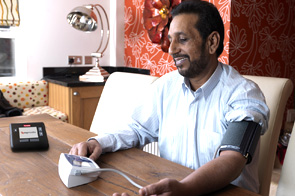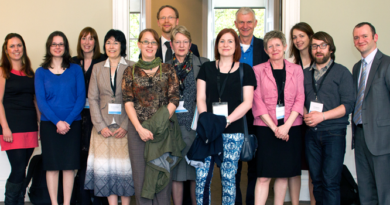Telecare and Ageing at Home with Dignity
By Alan Roulstone, Professor of Disability and Inclusion, Northumbria University
Northumbria University are proud to be a consortium partner with Aktive. The bringing together of industry, academia, medical and social care expertise is very exciting and a model of research impact and collaboration. Our role has been to provide insights into the policy context and to provide a ‘state of the art’ appraisal of the barriers to take up and use of telecare from the available evidence. Telecare is seen to offer greater scope for ‘ageing in place’ and supports wider policy shifts towards personalised solutions in social care encapsulated in key policy documents such as Independence, Wellbeing and Our Health, Our Care, Our Say. The Preventative Technologies Grant (2006-2008) further symbolised this policy commitment in providing £80 million to support local authorities in developing telecare initiatives. This was later reaffirmed in the policy document Building Telecare in England and best practice was shared between local authorities through the Telecare Policy Collaborative. The Whole Systems Demonstrator (WSD) Sites Project was launched in 2008 to provide robust evidence for the implications of telecare and telehealth in England. Results of the WSD are Imminent. Telecare is also recognised as a tool for unpaid carers in a number of policy documents and is part of the Carers Strategy.
Despite the major policy shift to encourage ageing in place and telecare use there remain barriers to take up and use. Those whose sense of self is linked to their home may be more willing to use telecare to prevent admission into residential care. While telecare needs to best dovetail with pre- existing notions of home, space, personal control and autonomy. Poor design, poor matching of older person and telecare solutions and a lack of regular maintenance are all barriers to telecare uptake and use and more likely lead to ‘technology redundancy’. Psycho-social factors such as whether telecare conflicts or preserves a person’s self-image, and whether there is a ‘felt need’ for telecare have also been identified as a barrier to uptake. Commissioning and funding issues can also impede uptake – if the resources are not available or the telecare providers and paid care workers are not fully engaged in the telecare agenda, uptake can be affected. Socially and culturally sensitive commissioning, procurement, support and review are all key important. The matching of technology to service user not only follows the precepts of personalised social support but is also more likely to lead to sustained use of telecare. Aktive’s work will help engage with these barriers and design social and technical systems that aid telecare uptake and use.


